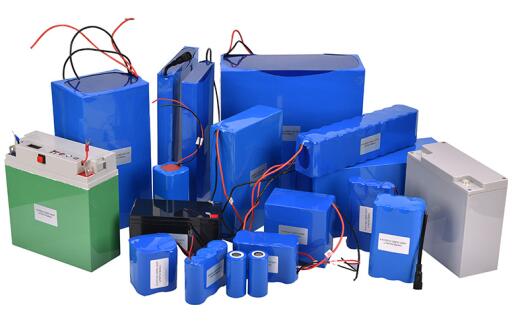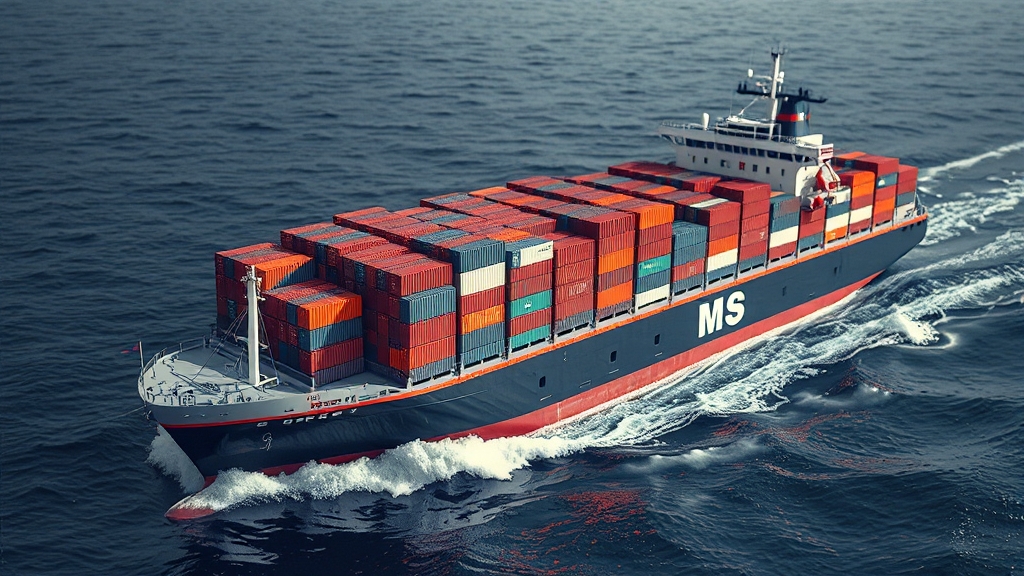In recent years, the demand for lithium batteries has surged significantly, driven by the rapid growth of electric vehicles, portable electronics, and renewable energy storage systems. As businesses and consumers increasingly rely on these batteries, understanding the nuances of sourcing and shipping them becomes paramount. Proper shipping procedures are not only essential for compliance with international regulations but also for ensuring safety during transit. In this blog, we will explore the critical steps involved in importing and shipping lithium batteries from China to Kuwait.
Related Article : Shipping From China to KUWAIT

Sourcing Lithium Batteries from China
Identifying Reputable Manufacturers
The first step in sourcing lithium batteries from China is identifying reputable manufacturers. Conducting thorough research is crucial, which can involve checking online platforms, industry trade shows, and referrals. Look for manufacturers who are certified and have a proven track record of producing high-quality products. Platforms like Alibaba can provide information on suppliers’ ratings and reviews, helping you make an informed decision.
Quality Control and Certification Requirements
Quality control is another critical aspect when sourcing lithium batteries. Ensure that the manufacturer adheres to international standards such as ISO certifications. Moreover, it is essential to verify that the batteries comply with safety regulations, such as UN38.3 for transport. Requesting samples for testing can also ascertain the product quality before placing bulk orders. This proactive approach minimizes risks and ensures you receive safe and reliable products.
Negotiating Terms and Prices
Once you have identified a suitable manufacturer, the next step is to negotiate terms and prices. Discuss minimum order quantities, payment terms, and lead times. It is advisable to get everything in writing to avoid any misunderstandings later. Additionally, don’t hesitate to compare offers from multiple suppliers to ensure you get a competitive price while maintaining quality standards.
Preparing for Shipment

Packaging Requirements and Best Practices
Proper packaging is vital when shipping lithium batteries, as they are classified as hazardous materials. Ensure that the packaging adheres to international shipping regulations, including the use of sturdy boxes, cushioning materials, and protective gear to prevent short-circuiting. Utilize materials that can withstand temperature fluctuations and physical impacts during transit. Hiring a professional freight forwarder, such as Dantful International Logistics, can ensure compliance with all packaging requirements and enhance safety.
Labeling and Marking Guidelines
Accurate labeling and marking are essential for the safe transport of lithium batteries. Each package must display appropriate hazard labels and symbols as per international regulations. These labels inform carriers and handlers about the nature of the contents and any associated risks. Ensure that your labels are clear, visible, and comply with the International Air Transport Association (IATA) and International Maritime Organization (IMO) guidelines.
Documentation Needed
Having the correct documentation is crucial for ensuring a smooth shipping process. Essential documents include transport documents, commercial invoices, and safety data sheets. The safety data sheet provides critical information about the lithium batteries, including their properties, handling instructions, and emergency measures. Working with a logistics provider familiar with the intricacies of shipping lithium batteries can streamline this process and ensure all necessary documentation is prepared accurately.
By following the steps outlined above, you will be well-prepared to import and ship lithium batteries from China to Kuwait, ensuring compliance with safety regulations and enhancing the efficiency of your supply chain.
Shipping Methods
Shipping lithium batteries from China to Kuwait can be accomplished through various methods, each with its own considerations and best practices. Understanding these options will help you select the most efficient and cost-effective method for your needs.
Air Freight Considerations and Restrictions
When opting for air freight, it is crucial to be aware of specific considerations and restrictions regarding the transport of lithium batteries. Due to the potential fire hazard posed by lithium batteries, airlines impose strict regulations on their transport. For example, lithium-ion batteries are often limited in capacity (generally not exceeding 300 watt-hours). Furthermore, all shipments must adhere to the IATA Dangerous Goods Regulations, which dictate the packaging, labeling, and documentation requirements. It is also advisable to coordinate with your freight forwarder to ensure compliance and mitigate risks during transit.
Sea Freight Options
Sea freight is a more economical option for shipping larger quantities of lithium batteries. When choosing sea freight, it is essential to select a carrier that complies with the International Maritime Organization (IMO) regulations for hazardous materials. Containers must be appropriately labeled and secured to prevent movement during transit. Additionally, shipping lithium batteries by sea typically involves fewer restrictions than air freight, making it a popular choice for bulk shipments. Ensure that you work with a reputable logistics provider, such as Dantful International Logistics, to navigate the complexities of maritime regulations and optimize your shipping strategy.
Express Courier Services
For businesses that require expedited shipping, express courier services like DHL and FedEx offer reliable solutions for sending lithium batteries. These services can be beneficial for urgent shipments and typically include tracking and insurance options. However, it is essential to check each courier’s specific policies regarding the transport of lithium batteries, as restrictions may vary. Ensure that your packages meet the courier’s packaging and labeling requirements to avoid delays or additional charges.
Shipping From China to Middle East Countries:
- Shipping from China to Saudi Arabia
- Shipping from China to UAE
- Shipping from china to KUWAIT
- Shipping From China To EGYPT
- Shipping from China to Bahrain
- Shipping From China To Jordan
- Shipping From China To Israel
- Shipping from China to Qatar
- Shipping From China To IRAQ
- Shipping from China to Iran
Customs Clearance in Kuwait

Navigating customs clearance is a critical step when importing lithium batteries into Kuwait. Understanding the import regulations and requirements will help smooth the process and prevent potential delays.
Import Regulations for Lithium Batteries
When importing lithium batteries into Kuwait, it’s essential to comply with local import regulations. The Kuwait Customs Authority has specific guidelines regarding the importation of hazardous materials, including batteries. Importers must ensure that the products meet safety standards and regulations. Consulting with a knowledgeable freight forwarder can help ensure compliance with all local regulations.
Required Permits and Certifications
To import lithium batteries into Kuwait, specific permits and certifications may be required. This can include safety certifications from recognized testing laboratories, as well as import licenses from Kuwaiti authorities. Be prepared to provide documentation proving that the batteries comply with international safety standards. Again, seeking guidance from logistics professionals can facilitate the acquisition of the necessary permits.
Customs Duties and Taxes
When importing lithium batteries, customs duties and taxes will apply, similar to other imported goods. The rate may vary based on the product type and its classification under Kuwaiti customs regulations. Understanding these costs upfront can help you budget appropriately and avoid unexpected expenses. It is beneficial to work with a customs broker who can navigate the complexities of duties and taxes, ensuring compliance and efficiency.
Safety Precautions
Ensuring the safety of lithium batteries during transit is paramount. Implementing appropriate safety precautions helps prevent accidents and ensures compliance with regulations.
Proper Handling and Storage During Transit
Proper handling and storage of lithium batteries during transit are essential to prevent accidents. Workers should receive training on handling hazardous materials, including emergency response protocols. Batteries should be stored in secure locations, away from sources of heat and moisture, and should be kept upright to prevent leakage. Utilizing appropriate containment measures, like spill kits, can further enhance safety during transit.
Temperature Control Requirements
Lithium batteries require specific temperature controls during transport to maintain their integrity and safety. Extreme temperatures can affect battery performance and increase the risk of thermal runaway. It is advisable to monitor temperature conditions throughout the shipping process, especially during extended transit times. Working with a logistics provider familiar with temperature-sensitive shipments can help ensure compliance with these requirements.
Measures to Prevent Short Circuits
Preventing short circuits is critical when shipping lithium batteries, as they can lead to fires or explosions. Use non-conductive materials for packaging and ensure that terminals are protected with insulating caps or tape. Additionally, packing each battery separately can minimize the risk of contact between units. Regular audits of handling procedures can help reinforce these safety measures.
By adhering to these safety precautions and understanding the shipping methods, customs regulations, and importing procedures, you can effectively manage the importation of lithium batteries from China to Kuwait and ensure a smooth shipping experience.
Challenges and Solutions
Shipping lithium batteries poses several challenges that importers must navigate to ensure a smooth process. Understanding these obstacles and implementing effective strategies can significantly enhance your shipping experience.
Common Issues Faced When Shipping Lithium Batteries
One of the most common issues encountered when shipping lithium batteries is the stringent compliance with international shipping regulations. These regulations often vary by country and carrier, creating a complex landscape for importers. Additionally, the risk of battery fires during transport can lead to rejections or delays by carriers. Packaging errors or failure to meet labeling requirements are also frequent problems that can lead to costly complications.
Strategies to Overcome Shipping Obstacles
To address these challenges, businesses should adopt proactive strategies. First, invest in thorough research to understand the specific regulations that apply to your shipment, including packaging, labeling, and documentation. Establishing a checklist can help ensure compliance with every shipment. Second, consider developing relationships with reliable suppliers and logistics companies that have experience in transporting lithium batteries. This partnership can provide valuable insights into best practices and regulatory changes.
Working with Experienced Logistics Providers
Collaborating with experienced logistics providers, such as Dantful International Logistics, can amplify your shipping efficiency. Dantful specializes in international logistics and has extensive knowledge of the various regulations surrounding lithium battery shipments. Their team can assist with proper packaging, documentation, and customs clearance, ensuring that your shipments are compliant and arrive safely at their destination. By leveraging Dantful’s expertise, you can mitigate risks and streamline your shipping processes.
Dantful International Logistics Services:
- Dantful Ocean Freight Services
- Air Freight From China
- Amazon FBA Freight Forwarding
- WAREHOUSE Services
- One-Stop Customs Clearance Solution
- Cargo Insurance Services in China
- DDP Shipping Services By Dantful Logistics
- Out of Gauge Cargo Transportation Shipping Services
Compliance and Best Practices

Staying compliant with shipping regulations and implementing best practices is crucial for successful lithium battery shipments.
Staying Updated on International Shipping Regulations
International shipping regulations are continuously evolving, particularly concerning hazardous materials like lithium batteries. Importers should regularly review guidelines from authorities such as the IATA and IMO to ensure compliance. Subscribing to industry newsletters or following relevant organizations can provide updates on regulatory changes and best practices.
Training Staff on Proper Handling Procedures
Investing in training for staff on proper handling procedures is vital for minimizing risks associated with lithium battery shipments. Training should cover safe handling, packaging requirements, labeling guidelines, and emergency response protocols. Regular workshops can reinforce safety practices and ensure that employees are knowledgeable about the unique risks associated with lithium batteries.
Implementing Quality Control Measures
Establishing robust quality control measures can significantly enhance the safety and efficiency of lithium battery shipments. Consistent inspections during the packaging process can ensure compliance with regulations and minimize errors. Implementing a documented quality management system can help businesses track compliance and make necessary adjustments to their shipping processes.
FAQs
- What are the shipping restrictions for lithium batteries?
Lithium batteries are subject to strict regulations due to their potential fire hazard. Each carrier may have different restrictions regarding battery capacity and packaging. - How can I ensure compliance when shipping lithium batteries?
Working with experienced logistics providers, like Dantful International Logistics, and staying informed about the latest regulations can help ensure compliance. - What documentation is needed for shipping lithium batteries?
Essential documentation includes transport documents, safety data sheets, and any necessary permits or certifications.
References
- International Air Transport Association (IATA) – Dangerous Goods Regulations
- International Maritime Organization (IMO) – Maritime Safety

Young Chiu is a seasoned logistics expert with over 15 years of experience in international freight forwarding and supply chain management. As CEO of Dantful International Logistics, Young is dedicated to providing valuable insights and practical advice to businesses navigating the complexities of global shipping.





















 Afrikaans
Afrikaans Shqip
Shqip አማርኛ
አማርኛ العربية
العربية Հայերեն
Հայերեն Azərbaycan dili
Azərbaycan dili Euskara
Euskara Беларуская мова
Беларуская мова বাংলা
বাংলা Bosanski
Bosanski Български
Български Català
Català Cebuano
Cebuano Chichewa
Chichewa 简体中文
简体中文 繁體中文
繁體中文 Corsu
Corsu Hrvatski
Hrvatski Čeština
Čeština Dansk
Dansk Nederlands
Nederlands English
English Esperanto
Esperanto Eesti
Eesti Filipino
Filipino Suomi
Suomi Français
Français Galego
Galego ქართული
ქართული Deutsch
Deutsch Ελληνικά
Ελληνικά Kreyol ayisyen
Kreyol ayisyen Harshen Hausa
Harshen Hausa Ōlelo Hawaiʻi
Ōlelo Hawaiʻi עִבְרִית
עִבְרִית हिन्दी
हिन्दी Hmong
Hmong Magyar
Magyar Íslenska
Íslenska Igbo
Igbo Bahasa Indonesia
Bahasa Indonesia Gaeilge
Gaeilge Italiano
Italiano 日本語
日本語 Basa Jawa
Basa Jawa ಕನ್ನಡ
ಕನ್ನಡ Қазақ тілі
Қазақ тілі ភាសាខ្មែរ
ភាសាខ្មែរ 한국어
한국어 كوردی
كوردی Кыргызча
Кыргызча ພາສາລາວ
ພາສາລາວ Latin
Latin Latviešu valoda
Latviešu valoda Lietuvių kalba
Lietuvių kalba Lëtzebuergesch
Lëtzebuergesch Македонски јазик
Македонски јазик Malagasy
Malagasy Bahasa Melayu
Bahasa Melayu മലയാളം
മലയാളം Maltese
Maltese Te Reo Māori
Te Reo Māori मराठी
मराठी Монгол
Монгол ဗမာစာ
ဗမာစာ नेपाली
नेपाली Norsk bokmål
Norsk bokmål پښتو
پښتو فارسی
فارسی Polski
Polski Português
Português ਪੰਜਾਬੀ
ਪੰਜਾਬੀ Română
Română Русский
Русский Samoan
Samoan Gàidhlig
Gàidhlig Српски језик
Српски језик Sesotho
Sesotho Shona
Shona سنڌي
سنڌي සිංහල
සිංහල Slovenčina
Slovenčina Slovenščina
Slovenščina Afsoomaali
Afsoomaali Español
Español Basa Sunda
Basa Sunda Kiswahili
Kiswahili Svenska
Svenska Тоҷикӣ
Тоҷикӣ தமிழ்
தமிழ் తెలుగు
తెలుగు ไทย
ไทย Türkçe
Türkçe Українська
Українська اردو
اردو O‘zbekcha
O‘zbekcha Tiếng Việt
Tiếng Việt Cymraeg
Cymraeg יידיש
יידיש Yorùbá
Yorùbá Zulu
Zulu